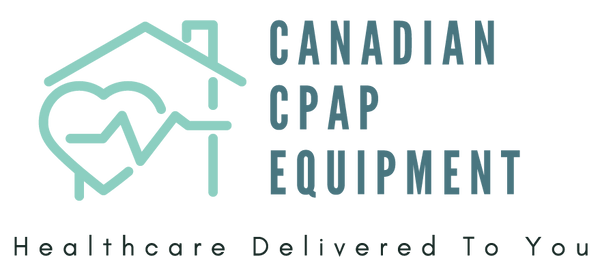Sleep apnea is far more than just a sleep disorder; it's a significant risk factor for a host of serious cardiovascular problems. The repeated interruptions in breathing and subsequent drops in oxygen levels during sleep place immense stress on the heart and blood vessels, contributing to the development and worsening of conditions like high blood pressure, heart attack, stroke, and heart failure. Understanding this critical link is vital for anyone with sleep apnea symptoms, getting an at-home sleep apnea test can help diagnose the condition early, allowing for timely and effective treatment that can profoundly impact long-term cardiovascular health.
How Sleep Apnea Harms Your Heart
The connection between sleep apnea and cardiovascular disease is multifaceted, involving several physiological mechanisms:
-
Intermittent Hypoxia (Oxygen Deprivation): Each time breathing stops or becomes shallow, the body is deprived of oxygen. These repeated episodes of hypoxia trigger a stress response, leading to surges in adrenaline and noradrenaline. This causes blood vessels to constrict and heart rate to increase, putting strain on the cardiovascular system.
-
Blood Pressure Surges: The body's response to oxygen deprivation includes a sharp increase in blood pressure. Over time, these nocturnal blood pressure spikes can lead to persistently high blood pressure (hypertension) during the day, even when awake. Hypertension is a major risk factor for heart disease and stroke.
-
Inflammation: Chronic intermittent hypoxia and the associated stress response can lead to systemic inflammation. Inflammation plays a key role in the development of atherosclerosis (hardening and narrowing of the arteries), which underlies many cardiovascular diseases.
- Sympathetic Nervous System Activation: Sleep apnea causes chronic activation of the sympathetic nervous system (the body's "fight or flight" system). This sustained activation contributes to increased heart rate, blood pressure, and overall cardiovascular stress.
Specific Cardiovascular Conditions Linked to Sleep Apnea
Untreated sleep apnea significantly increases the risk and worsens the prognosis of several major cardiovascular diseases:
-
Hypertension (High Blood Pressure): Sleep apnea is one of the most common causes of secondary hypertension. The repeated nocturnal blood pressure surges contribute to sustained high blood pressure, which can be resistant to conventional medications.
-
Coronary Artery Disease (CAD) and Heart Attack: The chronic stress, inflammation, and oxygen deprivation associated with sleep apnea accelerate the development of atherosclerosis, leading to narrowed and hardened arteries. This increases the risk of heart attacks.
-
Stroke: Sleep apnea is an independent risk factor for stroke. The combination of hypertension, arrhythmias, and endothelial dysfunction (damage to the lining of blood vessels) significantly elevates stroke risk.
-
Heart Failure: Untreated sleep apnea can cause or worsen both systolic and diastolic heart failure. The increased workload on the heart due to repeated oxygen desaturations and blood pressure spikes can lead to weakening of the heart muscle.
-
Arrhythmias (Irregular Heartbeats): Sleep apnea is strongly linked to various heart rhythm disturbances, most notably atrial fibrillation (AFib), which is the most common type of arrhythmia. AFib significantly increases the risk of stroke. Other arrhythmias like bradycardia (slow heart rate) and ventricular arrhythmias can also occur.
- Pulmonary Hypertension: In some severe cases, chronic oxygen deprivation can lead to high blood pressure in the arteries of the lungs, a condition known as pulmonary hypertension, which puts further strain on the right side of the heart.
The Protective Power of Treatment
The good news is that treating sleep apnea, particularly with consistent CPAP therapy, can significantly mitigate these cardiovascular risks. Effective treatment:
-
Normalizes Blood Pressure: CPAP therapy can lower both nocturnal and daytime blood pressure, making hypertension easier to control.
-
Reduces Arrhythmias: Consistent CPAP use can decrease the frequency of atrial fibrillation and other arrhythmias.
-
Improves Heart Function: By reducing the strain on the heart, CPAP can improve heart function and reduce the risk of heart failure progression.
- Lowers Risk of Heart Attack and Stroke: By addressing the underlying mechanisms, treatment helps to reduce the overall cardiovascular risk.
Conclusion
The link between sleep apnea and cardiovascular health is undeniable and profound. Untreated sleep apnea is not just a nuisance; it's a silent threat to your heart. Prioritizing diagnosis and consistent treatment is a critical step in protecting your cardiovascular system, improving your overall health, and extending your life. If you have sleep apnea or suspect you do, consider taking a home sleep apnea test to get an accurate diagnosis from the comfort of your home. Early testing and treatment are key to protecting your heart and improving your sleep quality.
Next Steps: Sleep apnea isn't just an adult problem. In our next post, we'll discuss sleep apnea in children, including signs, symptoms, and diagnosis.

